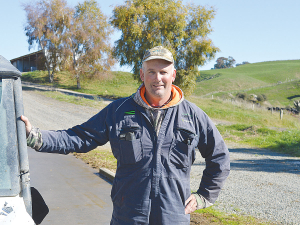Immigration New Zealand acknowledges staff shortages facing the dairy sector and says it is prioritising applications for overseas workers.
Immigration New Zealand (INZ) director visa Sarah Clifford says they appreciate that waiting on visa applications to be processed can be stressful.
Clifford says they are also “very aware” of the workforce pressures the dairy sector is currently facing.
“We are engaging with Federated Farmers regarding this situation,” she told Dairy News.
INZ was reacting to criticism from former Federated Farmers immigration spokesman and Waikato farmer Chris Lewis around accredited employer scheme.
He says being an accredited employer with INZ isn’t helping dairy farmers secure visa for overseas workers. The scheme is “almost farcical”.
“Farmers pay to become accredited employers. It’s a timetested process, farmers must have a long history of being good employers and keep good records,” Lewis told Dairy News.
“But it’s still taking us four to five months to get a visa for overseas workers.”
It also costs employees around $740 per visa application, plus the cost of hiring and lost productivity from being a person down. Lewis doesn’t think it should take INZ four months to verify documentation.
“With all the money they get for each visa application, they can easily hire extra staff and set up a dedicated team to quickly go through a four-page visa application.”
Clifford points out that changes to the Accredited Employer Work Visa (AEWV) scheme were announced in April 2024. These included introducing an English language requirement for migrants applying for lower skilled roles, and a minimum skills and work experience threshold for most AEWV roles.
It also includes a requirement for employers to advertise for longer and engage with Work and Income before approval to bring in migrants will be granted for low skilled roles, and reducing the period a migrant worker can stay in New Zealand continuously (or maximum continuous stay) for most of these roles from five years to three years.
In May, the Government made a one-off, temporary change to reduce the Job Check advertising requirement for ANZSCO level 5 dairy cattle farm roles. For job check applications submitted before 14 July 2024, employers only needed to advertise these roles for 14 days nationally, instead of 21 days, and engage with Work and Income.
“Since then, we have prioritised the allocation of Job Check and AEWV applications for dairy workers and will continue to do so until 1 August 2024 at this time,” says Clifford.
Dairy sector applications are currently being managed closely and dedicated staff trained in the dairy sector are processing these applications.
For the period 1 May and 24 July 2024, the average processing time for job checks for the dairy sector is 16 working days. For AEWV level 1-3 roles, it is 25 working days and for level 4-5 roles it is 35 working days.
Clifford says the processing time of an application depends on various factors such as the completeness of an application, any additional information required, and the level of verification required including third party checks.
“A high number of applications are not being submitted with all the required documents meaning they are taking longer to decide. A checklist has been provided to the dairy sector to help them to submit more complete applications.”


















